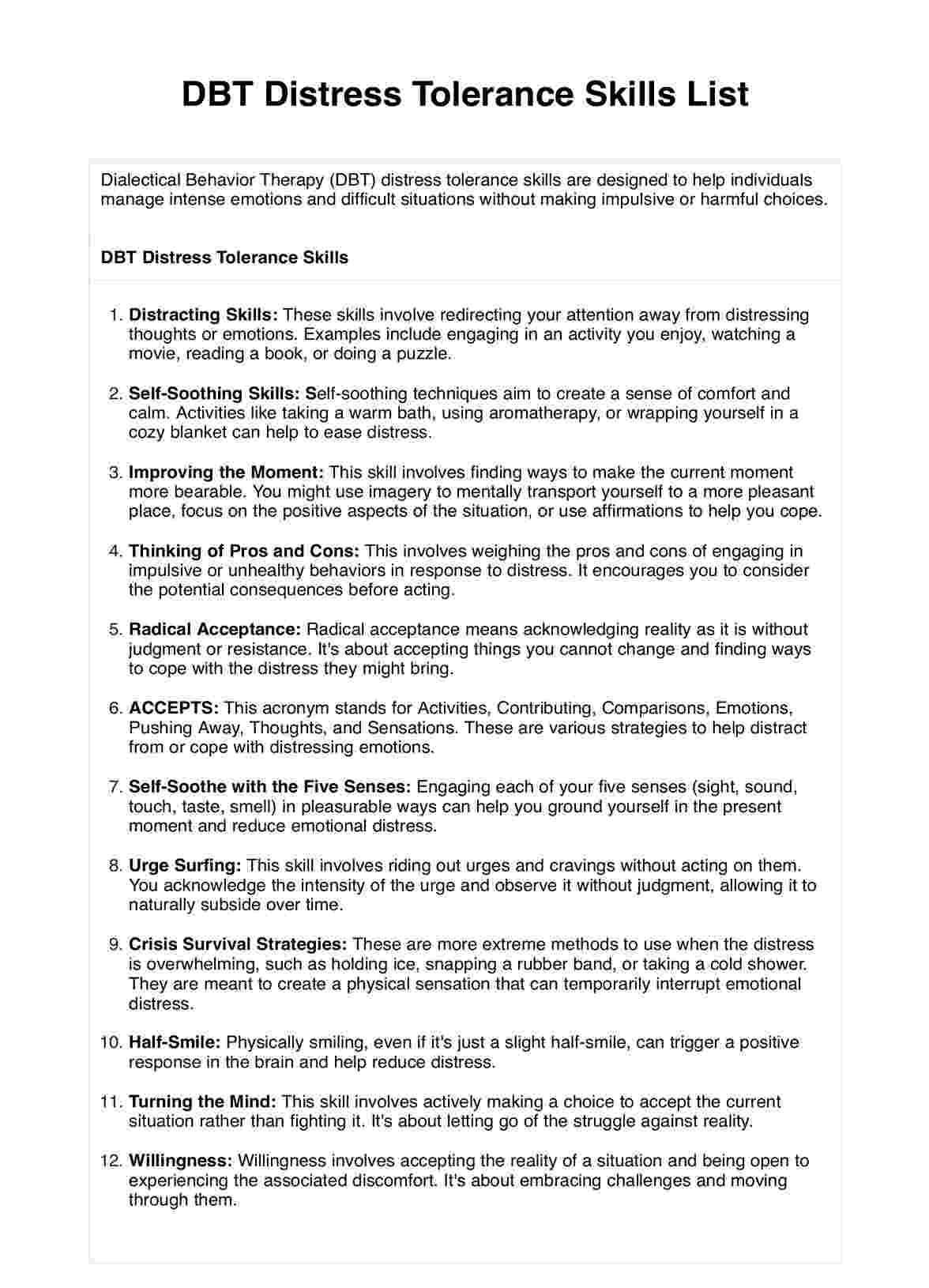Mental health professionals specializing in dialectical behavior therapy can utilize DBT Distress Tolerance Skills Lists to guide clients in effectively navigating their challenges.

DBT Distress Tolerance Skills List
Learn how a DBT Distress Tolerance Skills List can help your clients manage emotional crises. Download our helpful PDF template and example to get started.
DBT Distress Tolerance Skills List Template
Commonly asked questions
DBT Distress Tolerance Skills Lists allow clients to express and manage emotions, work towards resolving interpersonal conflicts, enhance awareness of thoughts and feelings, and develop healthier problem-solving strategies.
You can integrate a DBT Distress Tolerance Skills List as a component of your overall therapeutic approach. It proves particularly valuable when aiding clients in cultivating healthier distress tolerance strategies during overwhelming or emotionally dysregulated moments.
EHR and practice management software
Get started for free
*No credit card required
Free
$0/usd
Unlimited clients
Telehealth
1GB of storage
Client portal text
Automated billing and online payments











